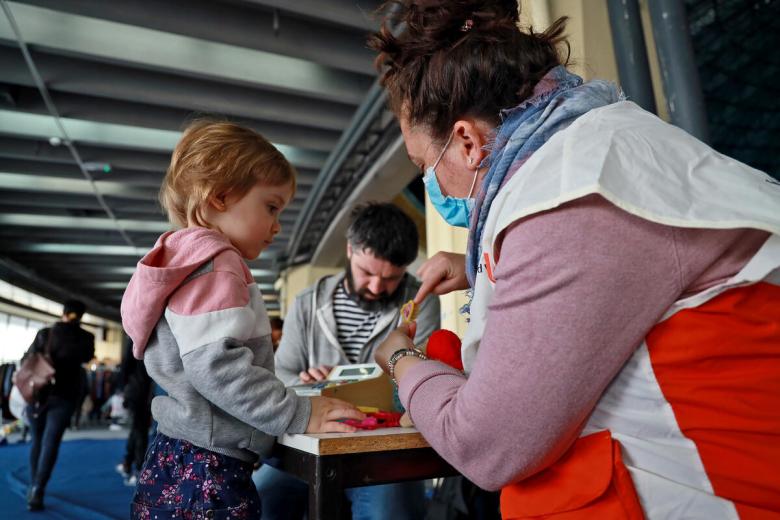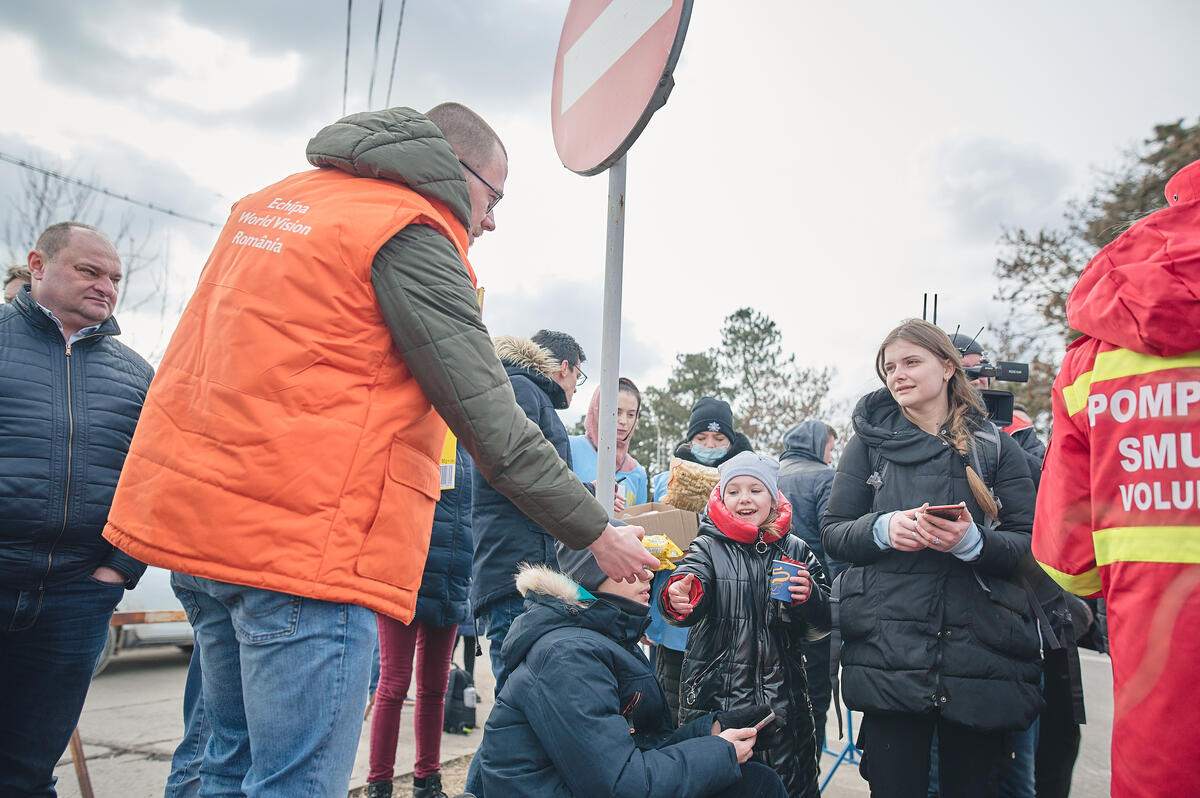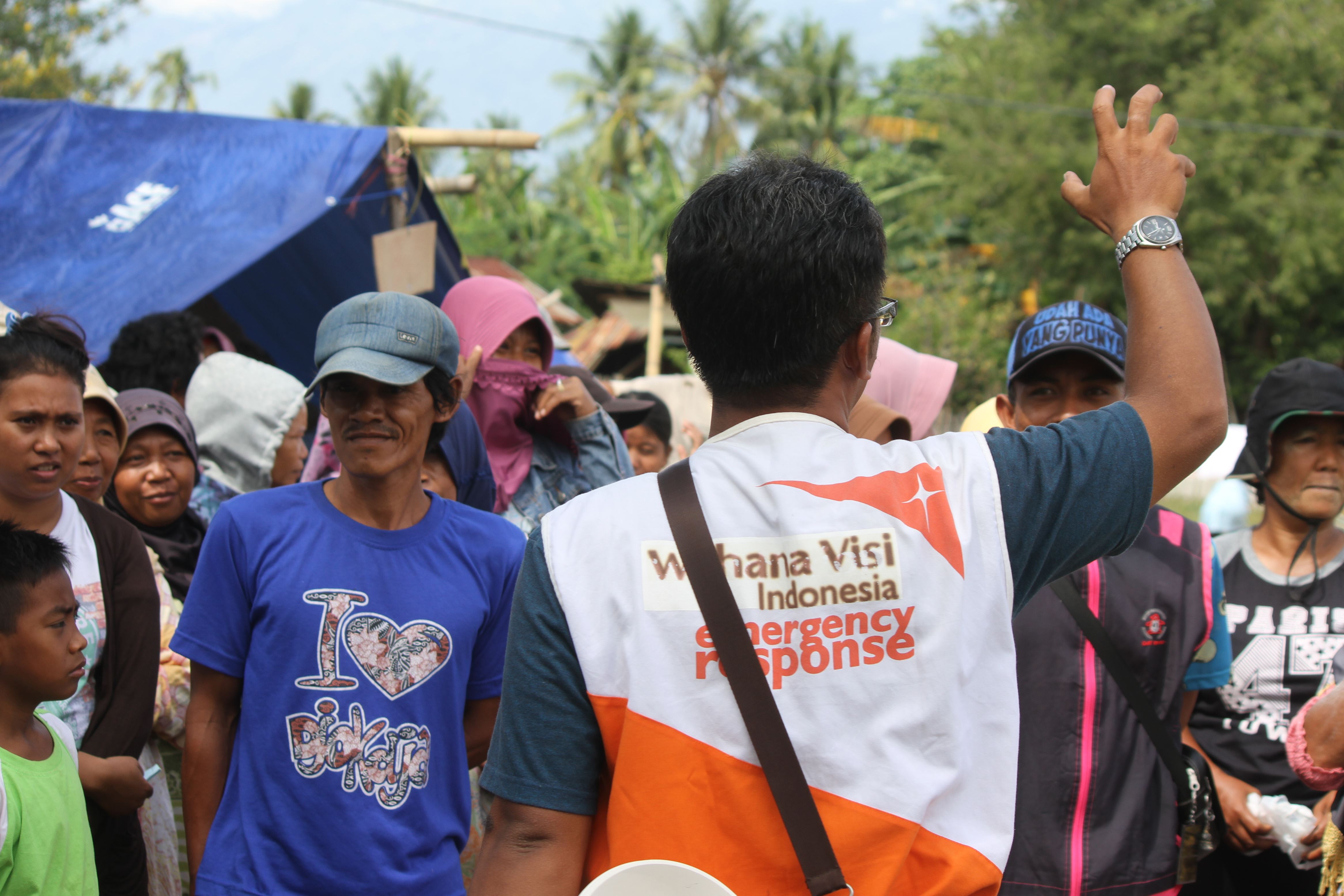
3 ways you can protect children in conflict zones
How you can bring hope into some of humanity’s darkest hours.
The scenes of heartbreak, chaos and ruin from conflict are gut-wrenching. It’s hard not to feel hopeless and helpless in the face of it. But, child sponsors around the world bring hope into some of humanity’s darkest hours – even when they don’t realise it. Here’s how.
Bewildered kids clutching teddy bears and their mother’s hand. Tear on faces turned away. Bundles and backpacks clenched as a lifeline to a dislocated life.
Conflict showcases the worst of human nature – greed, power, ego, brutality. It also means the light that can shine into that darkness stands in shocking, brilliant, stark relief. It can save or rebuild lives. It can change them forever and ensure that the conflict itself does not define them.
In over 70 years of working in the world’s hardest places, we’ve seen the power of staying in places of conflict or nearby and the impact of being in a community for the long haul. We know the life-changing impact of standing alongside children and their communities when they need it the most; of joining forces with people all over the world to protect kids and their future when worlds are turned upside down.
When most of us think about sponsoring a child, we think of helping kids get to school, get clean water to drink, get health care. We think about helping a child to get the essentials they need to experience a healthy, happy childhood and break the cycle of poverty for good.
Sponsoring a child does do that. But it does even more in areas of conflict or those neighbouring it. When conflict strikes in communities where we work, these three things happen:
1. Immediate action for children, because we are already on the ground

Because child sponsorship is already working in the places where it’s toughest to be a child, we are on the ground and positioned with existing local staff/knowledge and distribution networks to respond from the very first days of a conflict. That means different things in different places depending on the location of the conflict, and at times the communities we work with can be in the middle of the conflict or places where those affected by it escape to. Both have immediate and long-term needs. Right now, our child sponsorship programmes and presence in Romania meant our trained staff and volunteers were able to mobilise support in child protection, psychosocial, nutrition, shelter, health care and more for children and their families fleeing Ukraine, and our logistics system was able to deliver vital emergency supplies to the places they are needed most from the very start of the conflict.
2. Immediate action for children, because we can immediately mobilise funds to meet critical needs

When you sponsor a child, your gifts are always pooled with those of other sponsors supporting children in the same area and used to enable communities to tackle the worst problems their children face. Pooling funds maximises the impact of your gifts by focusing resources on the most critical needs. When conflict breaks out, we can immediately direct part of sponsors’ pooled contributions to meeting the urgent, life-threating needs of children and families in conflict zones and for those who flee conflict and arrive in communities where we are working, it allows us to continue with longer-term support and care.
3. Long-term support, because we will be there to help children recover

Even when the conflict is over, it can take nations decades to rebuild and recover. Sponsoring a child is a commitment to walk alongside a child and their community and support them as they transform their world and break the cycle of poverty. We partner with communities for the long run, usually 15 years or more, to create lasting change. In Sierra Leone for example, we were there during the height of the civil war and we are still there 20 years after it ended, continuing to work alongside communities in 25 areas to improve children’s health, nutrition, education and protection. We continue to work in Ugandan communities, supporting children and families who escaped violence and persecution in South Sudan. Sponsoring a child means that children and communities have the support they need not just to survive today, but to thrive in a better tomorrow.




